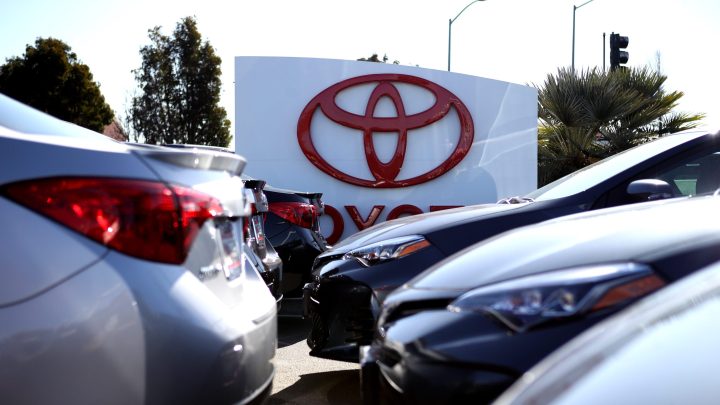
Toyota’s Camry sedan is going exclusively hybrid in 2024

These last couple years, we’ve heard a lot about traditional automakers rushing into the market for all-electric cars, SUVs and trucks. But there’s one company that hasn’t moved so fast: Toyota. Instead, the company has expanded its line of hybrids, cars powered by both gas engines and electric motors. Not exactly the cutting edge of fully battery-powered technology.
But the market for fully electric vehicles has seemed a bit shaky lately. Sales are growing, but not quite as fast as some companies hoped. And this week, Toyota announced its best-selling sedan, the Camry, will be sold exclusively as a hybrid starting next year.
The transition to electric vehicles is in something of a transition itself right now, said Sam Fiorani, vice president at AutoForecast Solutions.
“The market is transitioning between the early adopters and the regular car buyers,” Fiorani said.
Meaning, most people who are eager to pay a lot for high-tech electric cars have already done so, he said, leaving “car buyers who won’t pay $90,000 for an electric vehicle and don’t need to have the latest and greatest.”
And even as prices have dropped this year, EVs are a tough sell for many people, said Jessica Caldwell, head of insights at Edmunds.
“A lot of consumers are interested in electrified vehicles, but maybe not ready to take the full step towards EVs,” Caldwell said.
That’s where hybrids come in, she said. Drivers get better fuel economy, but don’t have to deal with some of the headaches that can come with owning a fully electric vehicle.
“You don’t have to look for a charging station, you don’t have to install a home charging station. And for a lot of people, that makes more sense,” Caldwell said.
Toyota is banking on that setting it apart from other automakers, which have thrown money into developing and producing fully electric vehicles in recent years. Meanwhile, Toyota, which popularized hybrids years ago with the Prius, has moved much more slowly, said Fiorani of AutoForecast Solutions.
“The management at Toyota has been averse to making that investment, thinking that this whole market is not going to shift as fast as everybody expected it to, and they’re being proven right,” Fiorani said.
Because while EV sales are increasing, they haven’t kept pace with the growing EV offerings from carmakers, leaving some with growing inventories of unsold cars.
Still, in the long run, Toyota does plan to roll out more fully electric vehicles, said Michael Moore, the company’s communications manager.
“It’s an important part of our strategy. But we also think that we should allow the customer to choose how they want to participate in this effort to reduce carbon,” Moore said.
And for now, the company is betting that choice is a hybrid.
There’s a lot happening in the world. Through it all, Marketplace is here for you.
You rely on Marketplace to break down the world’s events and tell you how it affects you in a fact-based, approachable way. We rely on your financial support to keep making that possible.
Your donation today powers the independent journalism that you rely on. For just $5/month, you can help sustain Marketplace so we can keep reporting on the things that matter to you.











